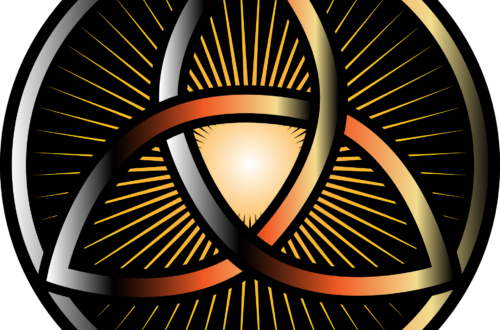
Give It Up: You Can’t Improve Yourself!
I recently heard this line, “You can’t improve yourself,” in a talk by Alan Watts. It struck me in two ways. First, it was rather depressing to think that I couldn’t improve this flawed human being that I am. In other words, I am stuck with myself, warts and all.
The second way it struck me was as a relief. I could stop all this endless self-improvement work and accept myself as I am.
Alan Watts is Right
The more I thought about what Watts claimed, the more I understood he was right. It is impossible to improve ourselves if only for the simple reason that the self we strive to improve is the one seeking to do it.
In other words, the flawed self that needs improving is the same imperfect self that is doing the improving. It’s a “tautology.” In philosophy, it’s called circular reasoning, meaning we can never get out of our way because we are the entity that needs improving.
Watts points out that many already know we are ill-equipped to improve ourselves, so we search for an authority to help us.
Our Flawed Ego Can’t Improve Itself
The problem is that our flawed self still judges that this person is the right person to mentor us. How do we know that? We may have heard a talk by this person that convinced us. Maybe some friends, very excited about a well-known self-help guru’s expensive program, claimed it made a huge difference in their lives.
But still, it is my flawed self that has to make the determination. I have to decide if my friends are telling the truth or just trying to justify the money they spent. Misery loves company, and perhaps ignorance does too.
Can’t Great Teachers Help Us?
So, let’s say I have read and talked to a number of “great” teachers, philosophers, self-help gurus, or what have you, and after all that, here I am, still basically the same mess I was before. What do I do now? Do I accept what Alan Watts says and give up all hope of getting better? The answer is yes.
Those with inner awareness may find we go around in circles in our minds over the same issues. Maybe there is some aspect we don’t like about ourselves, and we set out to improve it. For example, say we overreact in certain situations.
So the next time this situation arises, we grit our teeth, grin, and bear it. When it is over, we don’t feel any better; maybe we feel worse because we have stuffed all those feelings inside. It seems no matter what we do, we can’t get off this merry-go-round, and it’s because the flawed self is trying to improve the flawed self. The self that’s causing the problem is trying to solve it without knowing it is the cause of the problem. So what is to be done?
What is to Be Done?
The first thing Alan Watts suggest is to get out of our own way.” He then adds,
“The Buddhists tell us we can’t get there by thinking or not thinking. So there is nothing to do here because doing something and doing nothing doesn’t help. Instead, we must watch and not be in a hurry to find out a solution.”
And why are we watching and becoming more aware of ourselves? Because deep inside us is an intelligence that knows what to do. It’s that small, still voice we hear so much about. It’s that inner voice that we have neglected for so long. It knows who we are and what we need to do. But we must be patient. We need time to reach down through all our bullshit, insecurity, and fears to hear it. But it’s there, just waiting for us to come home.
That is where the relief part of “I can’t improve myself” comes in. Returning to the situation where we overreact to a problem, Watts says we should give up trying to change ourselves and accept that this situation will make us angry. That is who we are. We are someone who gets pissed off in these types of circumstances.
Just Relax
When we finally accept that, we can relax and give birth to the “witness,” that higher part of ourselves that is calmly aware of everything we think, do, and feel without judgment. It just watches.
If you feel a judgment coming on, know it is not the witness. That is your ego, so observe that. That is all you can do. That is who you are at that moment. Don’t run from it.
As we get better and better at “witnessing,” we begin to trust our natural reactions because the more we witness, the deeper our understanding goes. Then, out of the blue, we may find something bubbling up from within. Perhaps it’s a thought or a feeling that emerges that we want to express in some way, maybe through a poem, prose, or music.
Authentic Self-Expression
The critical thing is that it arose naturally and spontaneously. Our flawed self was not its source. Instead, it came from a place much deeper than that. And we want to express it, not because we hope to make money or garner more fans, likes, or claps, but because it says who we are, and it feels right to do it.
This constant need to improve ourselves and become our best version can be incredibly destructive. It’s the dog chasing its tail. In the same way, we are constantly chasing ourselves. Unfortunately, the self we are chasing is ourselves. It just doesn’t know it.
The only way to put the brakes on and transcend this state is to stop trying to change things and accept things as they are. Don’t be in a hurry. Let the anger, doubts, insecurities, fears, and all of that dissipate over time so we can hear our authentic voice inside. The only way to listen to it is to stop chasing our tails and just be. Let our inner wisdom guide us. It knows more than our ego and all the other great teachers do when discovering our true selves.
To learn more about the Intelligence and Magic of the Universe: Click this link: The Magical Universe




